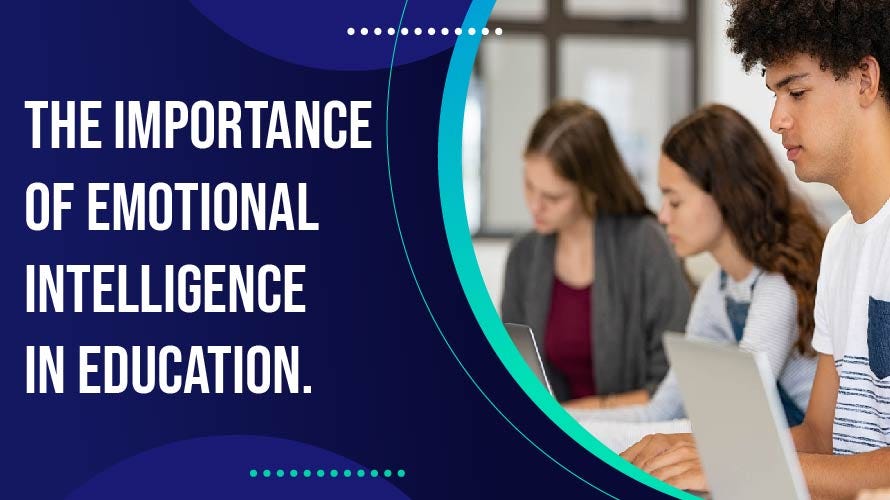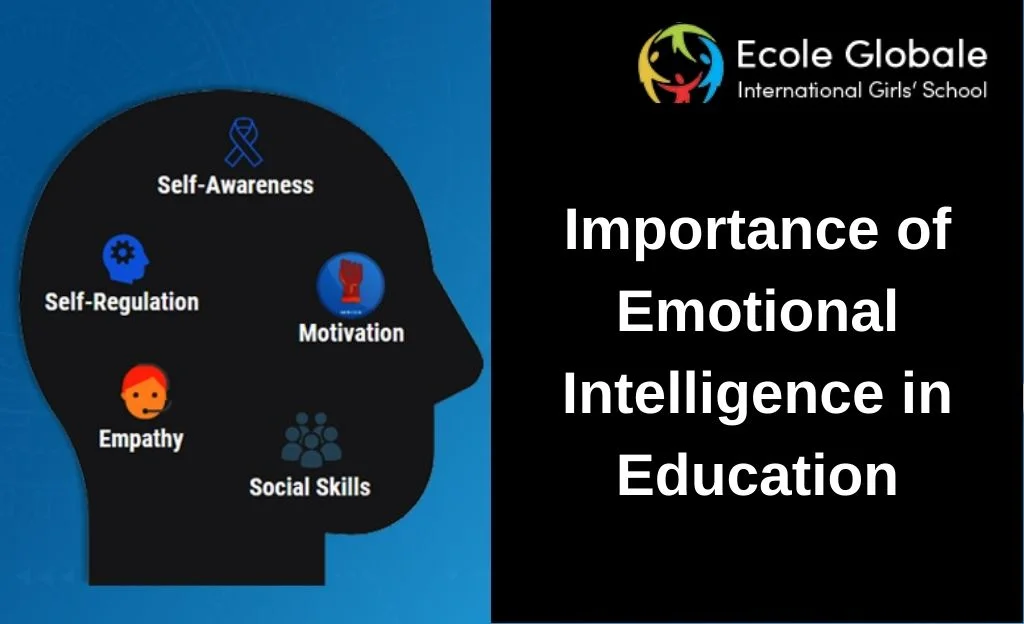
Emotional Intelligence in Learning
Imagine a classroom where students not only excel academically but also thrive emotionally. This vision is becoming more achievable as educators recognize the pivotal role of emotional intelligence in learning. Gone are the days when grades alone dictated success; now, understanding emotions and fostering social skills take center stage.
Emotional intelligence, often abbreviated as EQ, plays a crucial part in shaping how students interact with their peers and approach challenges. It influences motivation, resilience, and even creativity—all vital components of effective learning. As we dive deeper into this fascinating topic, we’ll explore how emotional intelligence can redefine academic experiences for both students and educators alike. Get ready to uncover why mastering emotions might just be the key to unlocking true potential in learning environments!

Definition of Emotional Intelligence
Emotional intelligence refers to the ability to recognize, understand, and manage our emotions while also being aware of the feelings of others. It encompasses skills such as emotional awareness, empathy, self-regulation, and effective communication.
At its core, EQ allows individuals to navigate social complexities with ease. Those who possess high emotional intelligence can build stronger relationships and resolve conflicts more effectively.
Unlike traditional measures of intelligence that focus solely on cognitive abilities or IQ, emotional intelligence emphasizes interpersonal skills and self-awareness. This makes it particularly valuable in educational settings where collaboration is key.
In essence, developing emotional intelligence equips students with tools necessary for personal growth and academic success. Understanding one’s own emotions enhances learning experiences while fostering a supportive environment among peers.
The Importance of Emotional Intelligence in Learning
Emotional intelligence plays a critical role in the learning process. It enables students to navigate their emotions, fostering resilience and adaptability. When learners understand their feelings, they can better manage stress and anxiety.
This understanding leads to a more focused mindset during lessons. Students with high emotional intelligence tend to engage more fully with the material presented. They ask questions, participate actively in discussions, and collaborate effectively with peers.
Moreover, emotional intelligence supports social interactions within the classroom. Strong interpersonal skills help students build relationships with teachers and classmates alike. This sense of community enhances motivation and creates a supportive learning environment.
In essence, nurturing emotional intelligence is essential for academic success. It empowers individuals not just academically but also personally as they encounter challenges both inside and outside school walls.
How Emotional Intelligence Affects Academic Performance
Emotional intelligence plays a crucial role in shaping academic performance. Students with high emotional intelligence can better manage stress and anxiety, which often accompany school life. This capacity allows them to focus more effectively on their studies.
Moreover, emotionally intelligent students build stronger relationships with peers and teachers. They communicate clearly, resolve conflicts amicably, and collaborate efficiently on group projects. These social skills enhance their overall learning experience.
Additionally, understanding one’s emotions leads to improved motivation. When students recognize what drives or hinders them academically, they can make informed choices about their learning strategies.
In essence, emotional intelligence fosters a positive mindset that encourages resilience in the face of challenges. As students navigate complex subjects or demanding workloads, this attribute becomes invaluable for maintaining persistence and academic success.
Developing Emotional Intelligence in Students
Developing emotional intelligence in students begins with creating a safe and nurturing environment. This allows young learners to express themselves freely without the fear of judgment. Encouraging open conversations about feelings can foster deeper connections among peers.
Role-playing activities are effective tools for helping students recognize emotions in others. These exercises teach empathy, allowing them to step into someone else’s shoes. When they understand diverse perspectives, their emotional skills sharpen naturally.
Mindfulness practices also play a crucial role in this development process. Techniques like meditation or deep breathing help students regulate their emotions effectively. They learn to pause before reacting, cultivating patience and self-awareness.
Incorporating team-building exercises encourages collaboration while enhancing social skills. Students not only work together but also navigate conflicts that arise within group settings, honing their problem-solving abilities along the way.
Strategies for Educators to Promote Emotional Intelligence
Educators play a vital role in nurturing emotional intelligence within their classrooms. One effective strategy is to integrate social-emotional learning (SEL) into the curriculum. This approach teaches students essential skills like empathy, self-regulation, and relationship management.
Encouraging open discussions about emotions can also foster understanding. Creating a safe space for students to express their feelings promotes trust and connection among peers.
Role-playing activities allow students to practice responding to various emotional scenarios. This experiential learning helps them develop better coping mechanisms.
Incorporating mindfulness practices can enhance focus and emotional awareness. Simple techniques like deep breathing or short meditation sessions can be transformative.
Providing regular feedback on both academic work and interpersonal interactions builds self-awareness. Positive reinforcement encourages growth while highlighting the importance of emotional competence in everyday situations.
Case Studies: Schools Implementing Emotional Intelligence Programs
Several schools have embraced emotional intelligence programs with remarkable results. One notable example is the Collaborative for Academic, Social, and Emotional Learning (CASEL), which has partnered with multiple districts across the United States.
In these schools, educators integrate emotional skills into their curriculum. They teach students to recognize and manage emotions effectively. As a result, classrooms become more harmonious environments.
Another inspiring case comes from a New York City school that adopted an emotional intelligence framework. Teachers reported increased student engagement and improved relationships among peers. This created a supportive atmosphere where learning thrived.
A California high school implemented weekly workshops focused on empathy and communication skills. Students learned how to navigate conflicts constructively, leading to fewer disciplinary issues.
These examples illustrate how integrating emotional intelligence in education can transform not just academic performance but also social dynamics within schools.
Conclusion: The Impact of Emotional Intelligence on Lifelong Learning
The impact of emotional intelligence on lifelong learning is profound. It shapes not only how students engage with their education but also how they navigate the complexities of life beyond the classroom. Emotional intelligence fosters resilience, adaptability, and strong interpersonal skills—qualities essential for success in any endeavor.
As individuals develop these skills throughout their educational journey, they carry them into adulthood. This foundation allows for continuous growth and improvement across various domains, whether personal or professional. The ability to understand oneself and relate effectively to others enhances collaboration, problem-solving, and leadership abilities.
By prioritizing emotional intelligence in learning environments today, we cultivate learners who are better prepared for tomorrow’s challenges. Emphasizing this aspect of education creates a ripple effect that extends far beyond school walls. Fostering emotional intelligence nurtures a generation poised not just to learn but to thrive in all facets of life.




Leave a Reply